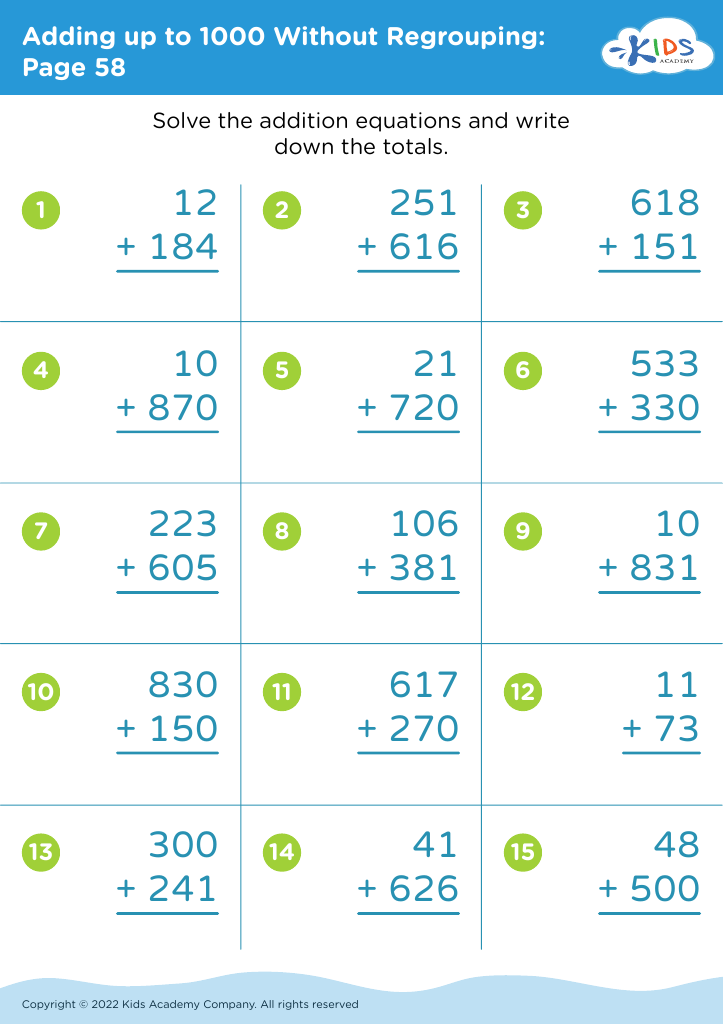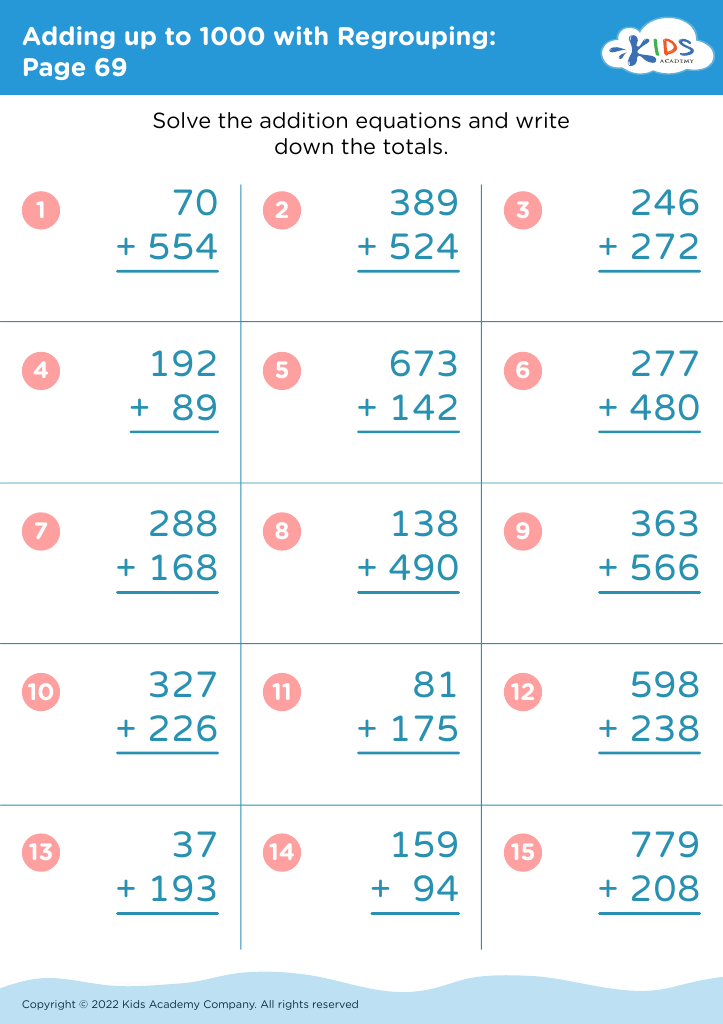Comparison Skills Math Worksheets for Ages 5-8
10 filtered results
-
From - To
Boost your child's math proficiency with our engaging Comparison Skills Math Worksheets for Ages 5-8. Perfectly designed for young learners, these worksheets enhance critical problem-solving abilities by teaching fundamental skills such as comparing numbers, quantities, and sizes. Each colorful, age-appropriate worksheet challenges children while making learning fun and interactive. With exercises tailored for individual or classroom use, our resources provide a strong foundation in mathematics by fostering essential comparison skills. Engage your child in meaningful practice that develops confidence and builds a solid understanding of math concepts crucial for future academic success. Explore our collection today and watch your child's math skills soar!
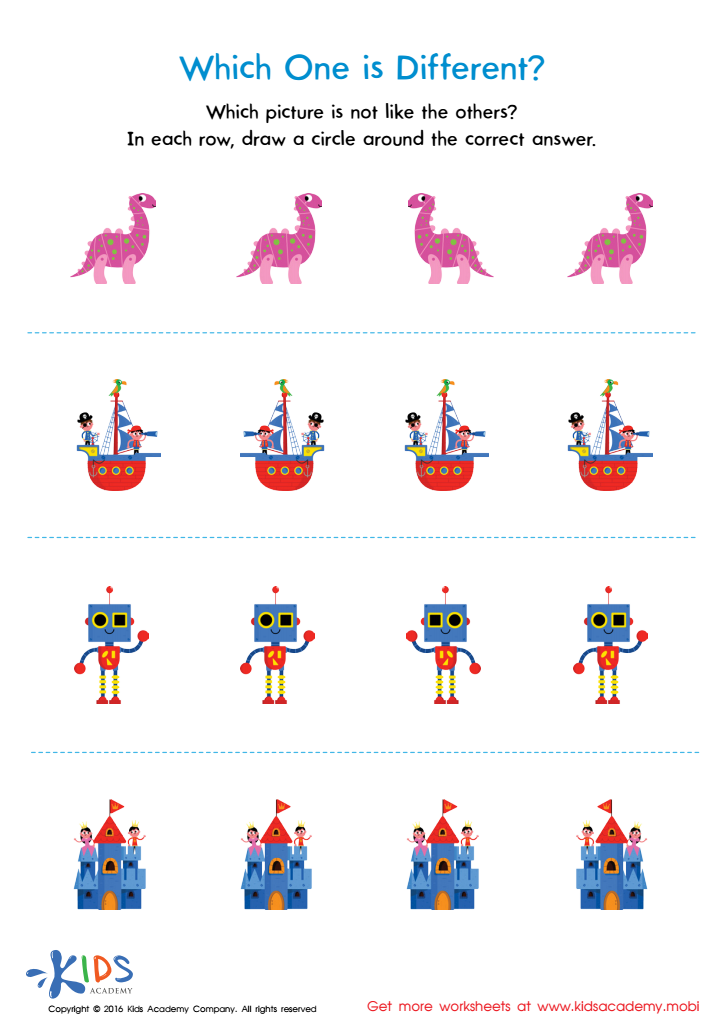

Which One Is Different Worksheet
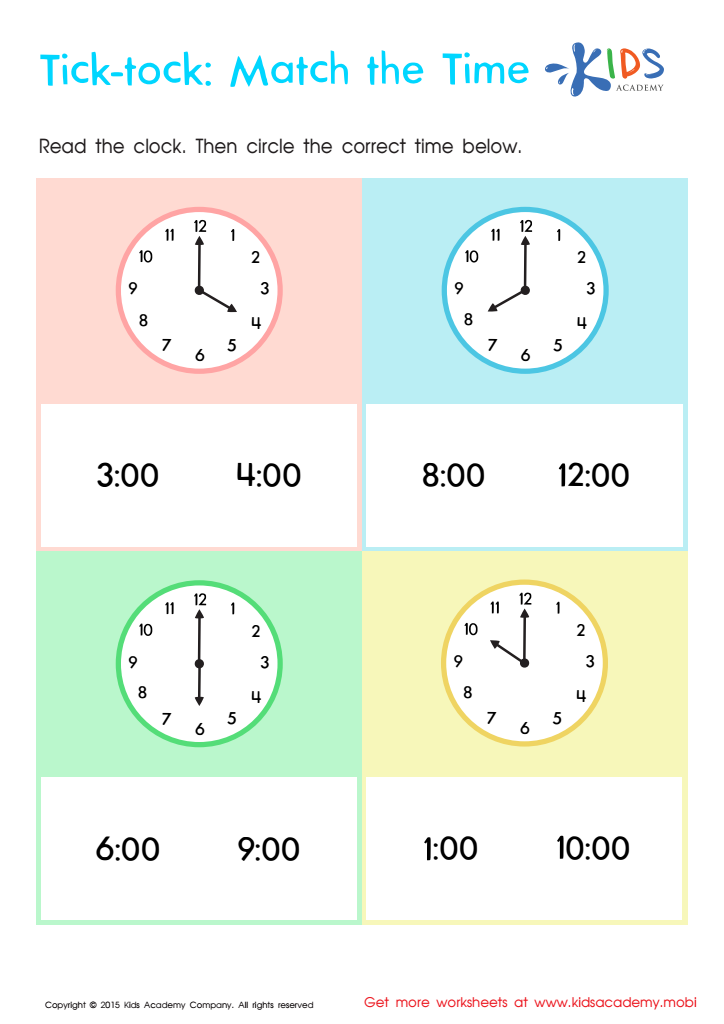

Telling The Time Worksheet: Part 4
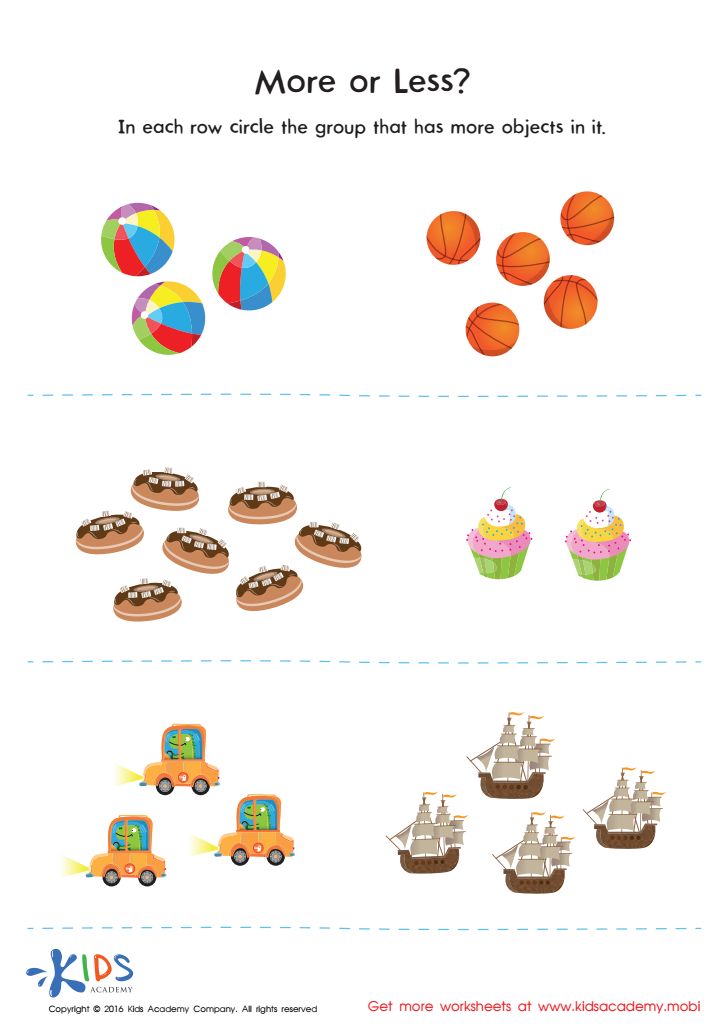

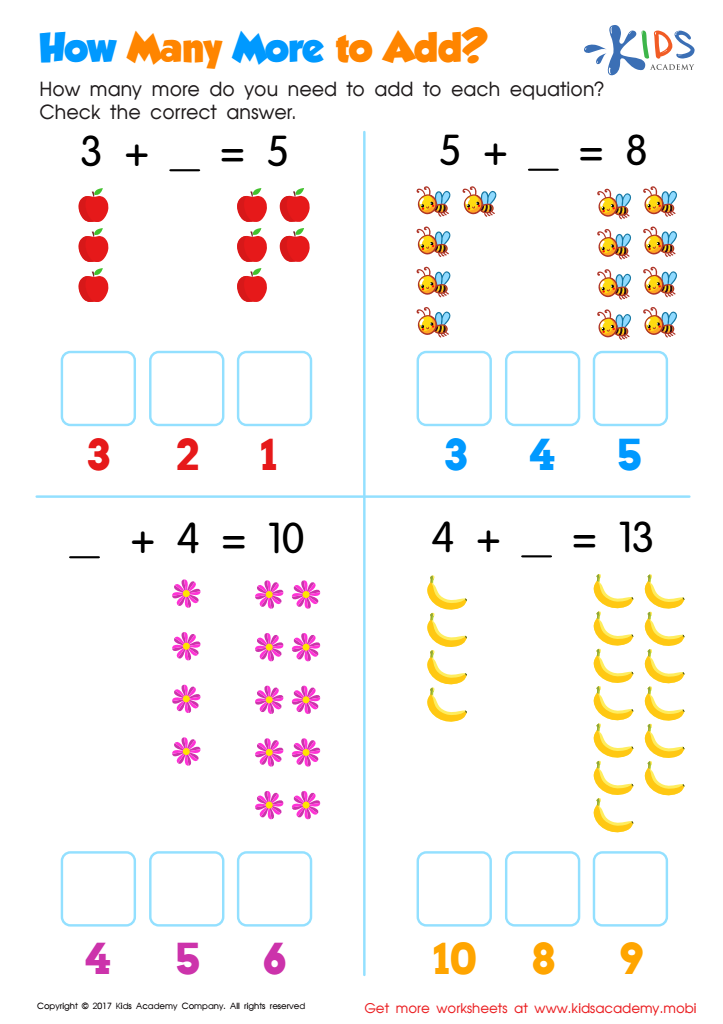

How Many More to Add Worksheet
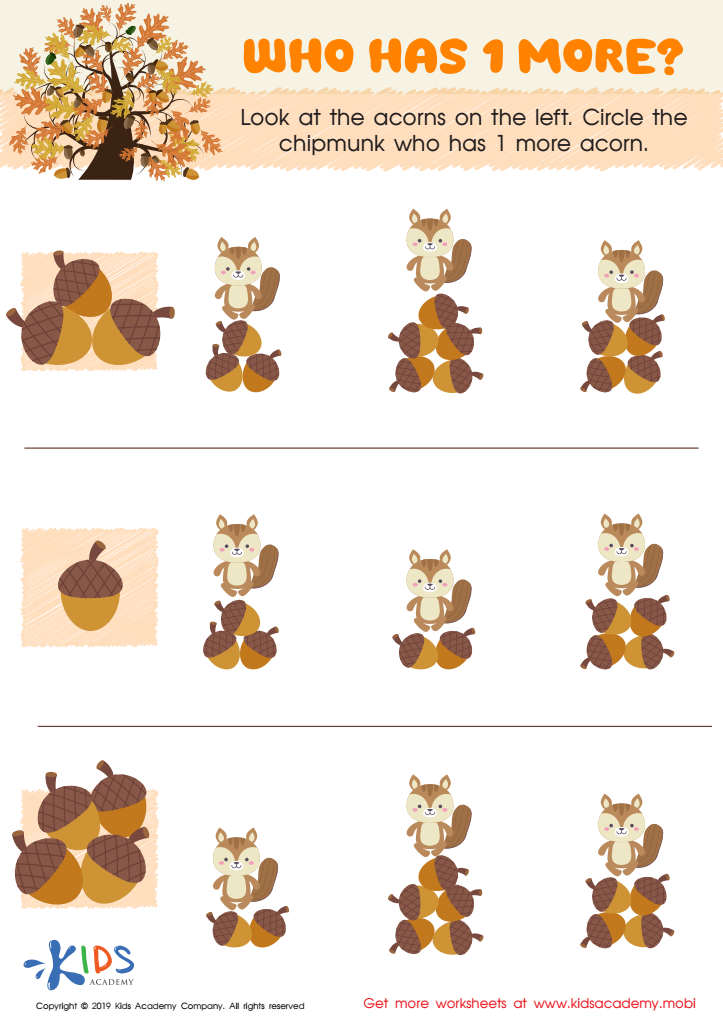

Who Has 1 More? Worksheet
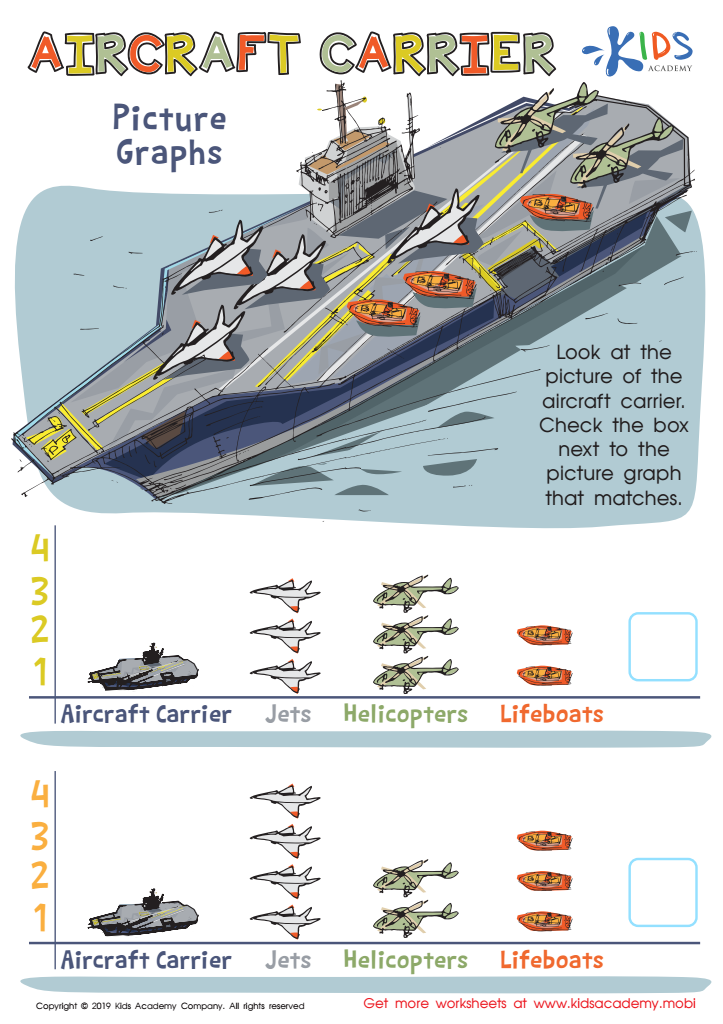

Aircraft Carrier Picture Graphs Worksheet
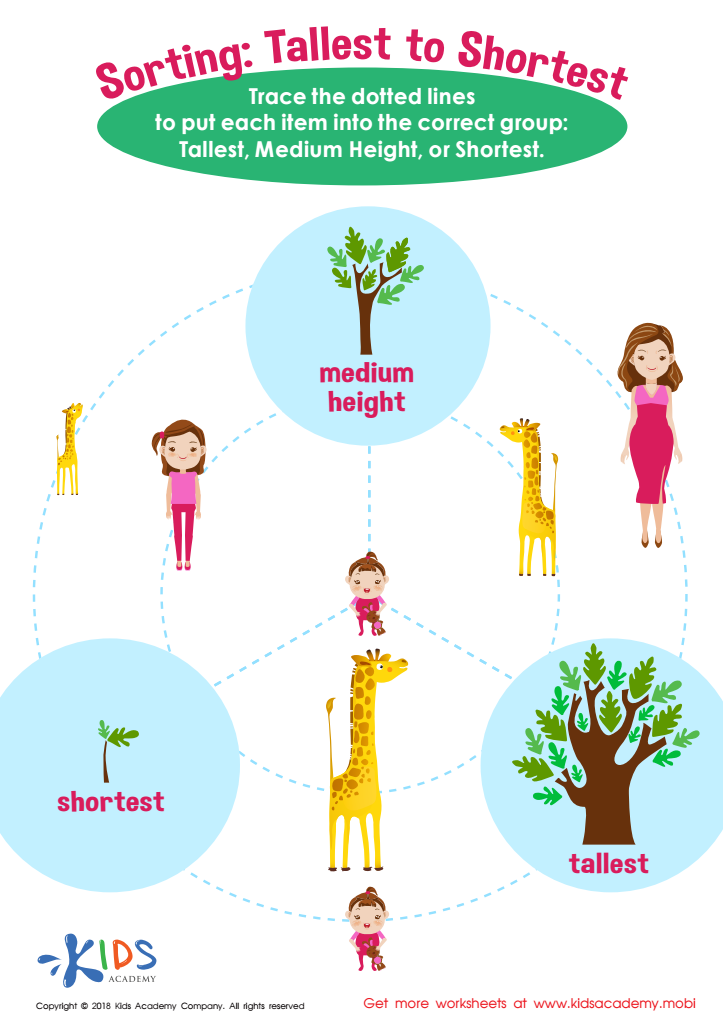

Sorting: Tallest to Shortest Worksheet
Comparison skills in math are foundational for young children, ages 5-8, as they play a crucial role in developing a range of cognitive and mathematical abilities. When parents and teachers prioritize these skills, they help children understand basic concepts such as more than, less than, equal to, and the order of numbers. This understanding is essential for tackling more advanced mathematical operations later on, such as addition, subtraction, and problem-solving.
Furthermore, comparison skills stimulate critical thinking and observational abilities. Children learn to analyze objects and numbers, differentiate between them, and make logical decisions based on their observations. This not only aids in math comprehension but also enhances overall cognitive development, including pattern recognition and analytical reasoning.
Caring about comparison skills also fosters a strong mathematical foundation and positive attitudes toward learning. Early success in comparing shapes, sizes, and quantities can boost a child's confidence and interest in math. When children experience enjoyment and achievement in math, they are more likely to develop a lifelong affinity for the subject, paving the way for success in their academic careers and enhancing problem-solving skills they will use throughout their lives. Therefore, emphasizing comparison skills lays the groundwork for both academic success and essential life skills.
 Assign to My Students
Assign to My Students

